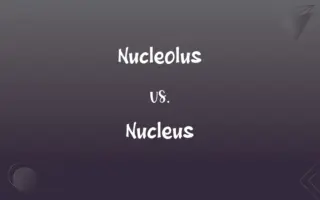Communism vs. Liberalism: What's the Difference?
By Janet White || Published on November 30, 2023
Communism is a social system advocating classless society and public ownership, while liberalism emphasizes individual rights and free market principles.

Key Differences
Communism, emerging from Marxist theory, aims for a classless society where all means of production are communally owned. While, liberalism, with roots in the Enlightenment, champions individual freedoms, private property, and a limited government role in economic affairs.
In communism, the state controls the economy with the goal of eliminating private ownership and achieving equality. Whereas, liberalism supports a capitalist economy where free markets and competition drive prosperity, with minimal state intervention.
Communism often leads to a single-party state controlling all aspects of life, seeking to abolish class distinctions. Liberalism, however, advocates for democratic governance, individual liberties, and the rule of law, with multiple political parties.
Communism seeks to eradicate social classes and distribute resources based on need, often resulting in centralized planning. Liberalism values social mobility, merit-based success, and the protection of individual rights, often leading to a diverse social hierarchy.
Throughout the 20th century, communism shaped societies like the Soviet Union and China, aiming for a stateless, classless society. Liberalism, influential in Western democracies, promotes individual freedoms, private enterprise, and democratic institutions.
ADVERTISEMENT
Comparison Chart
Economic System
State-controlled, classless
Free market, private property
Political Structure
Often a single-party system
Multi-party, democratic
Social Vision
Classless, equal distribution
Social mobility, individual rights
Role of Government
Centralized and extensive
Limited, protecting freedoms
Historical Example
Soviet Union
United States
ADVERTISEMENT
Communism and Liberalism Definitions
Communism
A social structure where the state controls production and distribution of goods.
Communism in the Soviet Union meant the government decided what was produced and distributed.
Liberalism
A political philosophy valuing individual rights and equality before the law.
Liberalism championed freedom of speech in the new constitution.
Communism
A system advocating for communal ownership and a classless society.
Under communism, the factory was owned by the community, not an individual.
Liberalism
A belief in democratic governance and the protection of civil liberties.
Liberalism influenced the establishment of many democratic institutions worldwide.
Communism
A political system where the government aims to create a classless society.
Communism abolished private businesses, making all enterprises state-owned.
Liberalism
An approach that emphasizes personal freedom and a tolerant society.
Under liberalism, diverse lifestyles and opinions flourished.
Communism
An ideology focusing on the elimination of class divisions.
In communism, wealth distribution aimed to equalize the economic status of all citizens.
Liberalism
A system that supports social and economic progress through individual initiative.
Liberalism encouraged innovation, leading to technological advancements.
Communism
A political theory derived from Karl Marx, aiming to establish a society where all property is publicly owned.
The communist manifesto inspired revolutions worldwide.
Liberalism
The state or quality of being liberal.
Communism
A theoretical economic system characterized by the collective ownership of property and by the organization of labor for the common advantage of all members.
Liberalism
A political theory founded on the natural goodness of humans and the autonomy of the individual and favoring civil and political liberties, government by law with the consent of the governed, and protection from arbitrary authority.
Communism
A system of government in which the state plans and controls the economy and a single, often authoritarian party holds power, claiming to make progress toward a higher social order in which all goods are equally shared by the people.
Liberalism
Often Liberalism The tenets or policies of a Liberal party.
Communism
The Marxist-Leninist doctrine advocating revolution to overthrow the capitalist system and establish a dictatorship of the proletariat that will eventually evolve into a perfectly egalitarian and communal society.
Liberalism
An economic theory in favor of laissez-faire, the free market, and the gold standard.
Communism
Any far-left political ideology or philosophy advocating holding the production of resources collectively, especially by seizing it through revolution.
Liberalism
A 19th-century Protestant movement that favored free intellectual inquiry, stressed the ethical and humanitarian content of Christianity, and de-emphasized dogmatic theology.
Communism
Any political social system that implements a communist political philosophy.
Liberalism
A 19th-century Roman Catholic movement that favored political democracy and ecclesiastical reform but was theologically orthodox.
Communism
The international socialist society where classes, money, and the state no longer exist.
Liberalism
The quality of being liberal.
Communism
A scheme of equalizing the social conditions of life; specifically, a scheme which contemplates the abolition of inequalities in the possession of property, as by distributing all wealth equally to all, or by holding all wealth in common for the equal use and advantage of all.
Liberalism
(politics) Any political movement founded on the autonomy and personal freedom of the individual, progress and reform, and government by law with the consent of the governed.
Communism
A form of socialism that abolishes private ownership
Liberalism
(economics) An economic ideology in favour of laissez faire and the free market (related to economic liberalism).
Communism
A political theory favoring collectivism in a classless society
Liberalism
Liberal principles; the principles and methods of the liberals in politics or religion; specifically, the principles of the Liberal party.
Liberalism
A political orientation that favors progress and reform
Liberalism
An economic theory advocating free competition and a self-regulating market and the gold standard
Liberalism
An ideology promoting free markets and limited government intervention.
Economic liberalism led to deregulation and a surge in entrepreneurship.
FAQs
What political systems do communism and liberalism support?
Communism often leads to a single-party system, whereas liberalism promotes democratic multi-party systems.
What is communism?
Communism is a social, political, and economic ideology that aims for a classless, stateless society with communal ownership of production.
How do communism and liberalism approach individual rights?
Communism may subordinate individual rights to collective goals, while liberalism prioritizes individual freedoms and rights.
How do communism and liberalism differ in economic views?
Communism advocates for a state-controlled economy, while liberalism supports free-market capitalism.
What is liberalism?
Liberalism is a political and moral philosophy based on liberty, consent of the governed, and equality before the law.
Did communism ever achieve its goals?
In practice, many argue it has not achieved its ideal of a classless, stateless society.
What is a key criticism of communism?
Critics argue it leads to authoritarian governance and economic inefficiency.
What is a key criticism of liberalism?
Critics say it can lead to inequality and neglect of social welfare.
Can communism and liberalism coexist?
They are fundamentally different ideologies, making coexistence challenging in pure forms.
Are there different types of liberalism?
Yes, including classical liberalism, social liberalism, and economic liberalism.
What are examples of communist countries?
Historically, the Soviet Union and Maoist China; currently, Cuba and North Korea are often cited.
How does liberalism view the role of government?
Liberalism sees government as necessary to protect individual rights and ensure fair markets.
What are the social goals of liberalism?
To ensure freedom of expression, equal opportunity, and a tolerant society.
How does communism approach social issues?
It aims for equal social status and eradication of class distinctions.
Is communism compatible with democracy?
Traditional communism has been incompatible with liberal democracy, though some argue for possible hybrid forms.
Has communism been successful anywhere?
Success is debated; some argue certain aspects have worked, while overall it hasn't met its theoretical ideals.
Are there any successful liberal societies?
Many Western democracies are considered successful examples of liberal societies.
Is liberalism pro-capitalism?
Generally, yes, especially in its economic form.
Can liberalism address economic inequality?
Social liberalism aims to do so through government intervention and social welfare programs.
How do property rights differ in communism and liberalism?
Communism negates private property rights; liberalism upholds them.
About Author
Written by
Janet WhiteJanet White has been an esteemed writer and blogger for Difference Wiki. Holding a Master's degree in Science and Medical Journalism from the prestigious Boston University, she has consistently demonstrated her expertise and passion for her field. When she's not immersed in her work, Janet relishes her time exercising, delving into a good book, and cherishing moments with friends and family.






































































